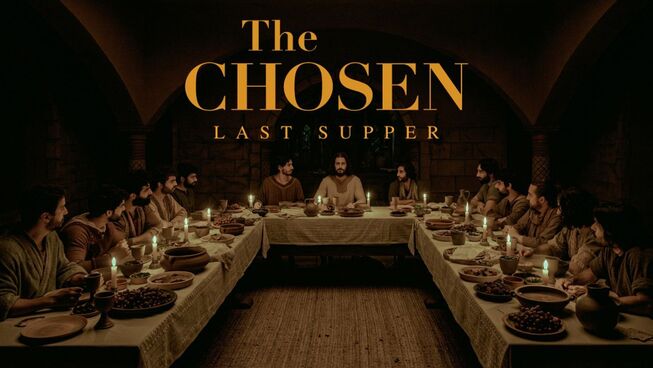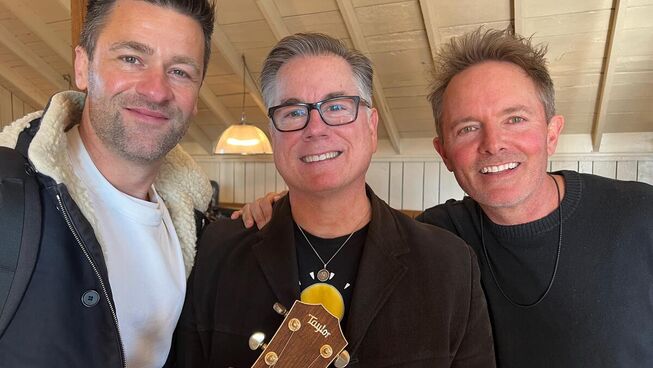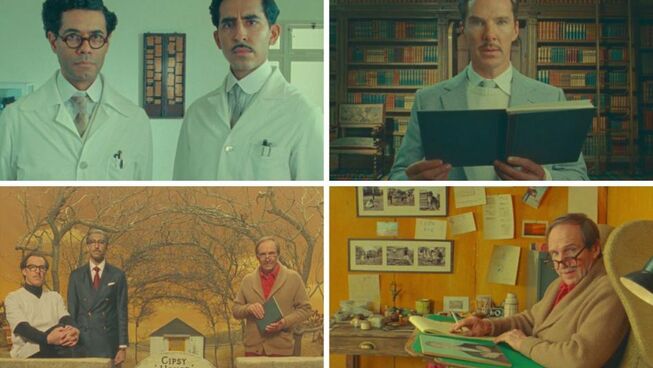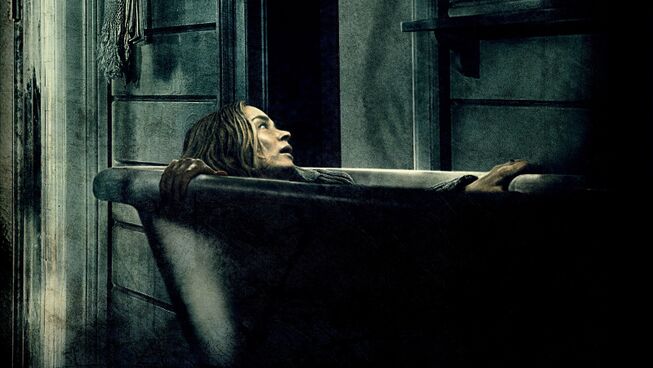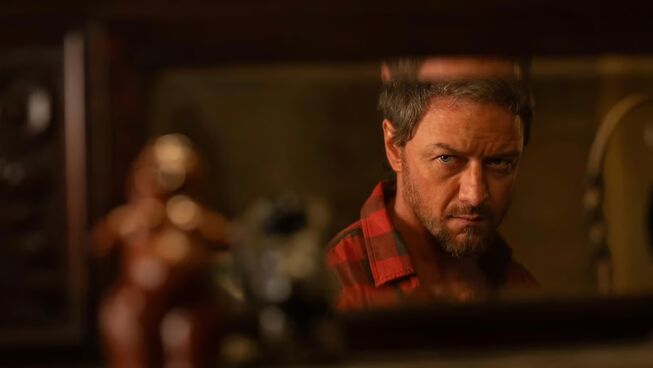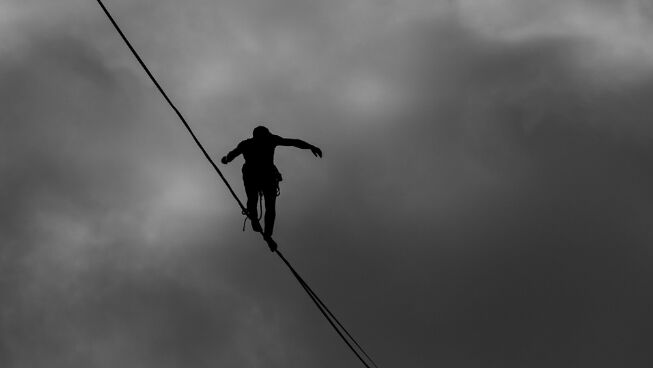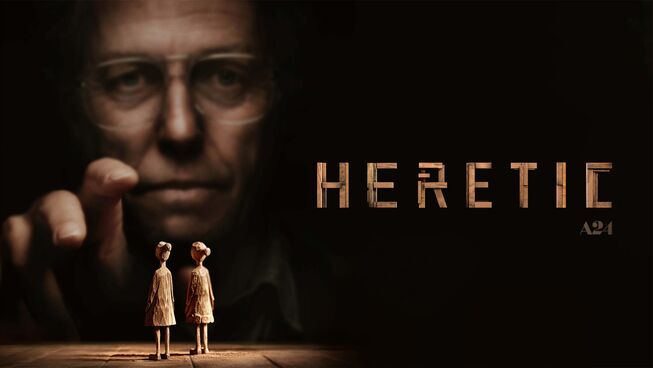
⭐️ ⭐️ ⭐️ (out of 5)
Writers turned directors Scott Beck and Byran Woods are perhaps best known for their screenplays for the alien invasion horror A Quiet Place and their prehistoric sci-fi action film 65. Now, the duo have turned their pens and lenses towards a cerebral deconstruction of organised religions in a taut thriller turned religious horror film that blasphemes and brutalises belief systems in an attempt to unveil the one true religion.
The film follows two Mormon missionaries, Sister Barnes (Sophie Thatcher) and Sister Paxton (Chloe East), who arrive at the home of a reclusive Englishman, Mr. Reed (Hugh Grant). Standing in the pouring rain on his doorstep, they state they cannot enter unless a woman is present, but after being told Reed's wife is preparing a blueberry pie in the kitchen, they enter his living room and begin to discuss religion.
However, the charismatic Reed gradually begins making several uncomfortable comments about the Mormon faith and the nature of belief. After stepping out of the room to check on his wife, Sister Barnes notices that the smell of blueberry pie is coming from a candle on the table, not from the kitchen. Attempting to leave, the pair soon realise the front door is locked, and they have no phone signal. Forced by circumstances to follow Reed further into his house, they enter his study-turned-religious sanctuary, where he proceeds to give a threatening lecture on the nature of beliefs, stating that all religions are adaptations of one another, and he claims to have found the one true religion. He gives the girls a choice of two doors to go through in order to exit the house, one if they still believe in God, and one if they do not. Barnes rebels, refuting several of his claims, before they enter the "Belief" door and descend into a hellish reality.
Heretic is a cautionary and provocative horror at its best when it’s a claustrophobic psychological thriller set in an eerie holy sanctuary with a series of cerebral debates about religious truth. But as soon as it starts to devolve into its more hellish underworld, it loses its cerebral control and becomes reliant on sudden scares and messy miracles, revealing the film to not be as smart as it perhaps thought. While the scintillating screenplay initially provides some genuine food for thought and does well to prompt critical thinking about the underlying assumptions of belief, its lack of answers ultimately leaves the story frustrated. The film spends plenty of time trying to disprove religions but never seems interested in assessing legitimate claims.
Hugh Grant is wickedly delightful, perfectly balancing charisma and creepiness as he transitions from intellectual theologian to cruel captor whose whole operation seems much more far-fetched than the faiths he seeks to disprove. Sophie Thatcher and Chloe East are engaging as the two Mormon missionaries and embody the increasing terror and tensions in their trapped predicament.
While many will still be very entertained by the film, its ultimate commentary is hollow and thin. Some may be offended by it, while others may be more disappointed that it ends up regressing into a serial killer slasher rather than maintaining its steadily unsettling psychological deconstruction.
But thank you Mr. Reed for your hospitality – we’d love to visit again and chat further with you about our Lord and Saviour, Jesus Christ.
Reel Dialogue: Who Is Really In Control?
The nefarious Mr. Reed’s thesis is that the one true religion is: control.
That every religion is ultimately just a system developed to control others. There is no exploration of the human urge to worship. Nor is any attention given to any of the historicity of any faiths. It’s a rather cynical view that implicitly presumes that letting someone else control your life is inherently wrong. We allow parents “control” their children. We submit to laws and regulations that “control” us. We observe natural laws in science that “control”. While many religions have been used to control, abuse and subjugate followers, this isn’t an excuse to discard all religions and systems of control and pendulum towards absolute free will and anarchy. Instead, seeing all of the failures of others in control should cause us to vet and question: who should be in control? Who should we submit to?
In a world of chaos where things may seem out of control or in our own lives where we may struggle to have any control, have you ever thought it may actually be freeing to let go and let the God who is in control step in?
“The Lord Almighty has sworn, "Surely, as I have planned, so it will be, and as I have purposed, so it will happen.” Isaiah 14:24
If you would like to know more about the God who is in control, contact us at Third Space.


